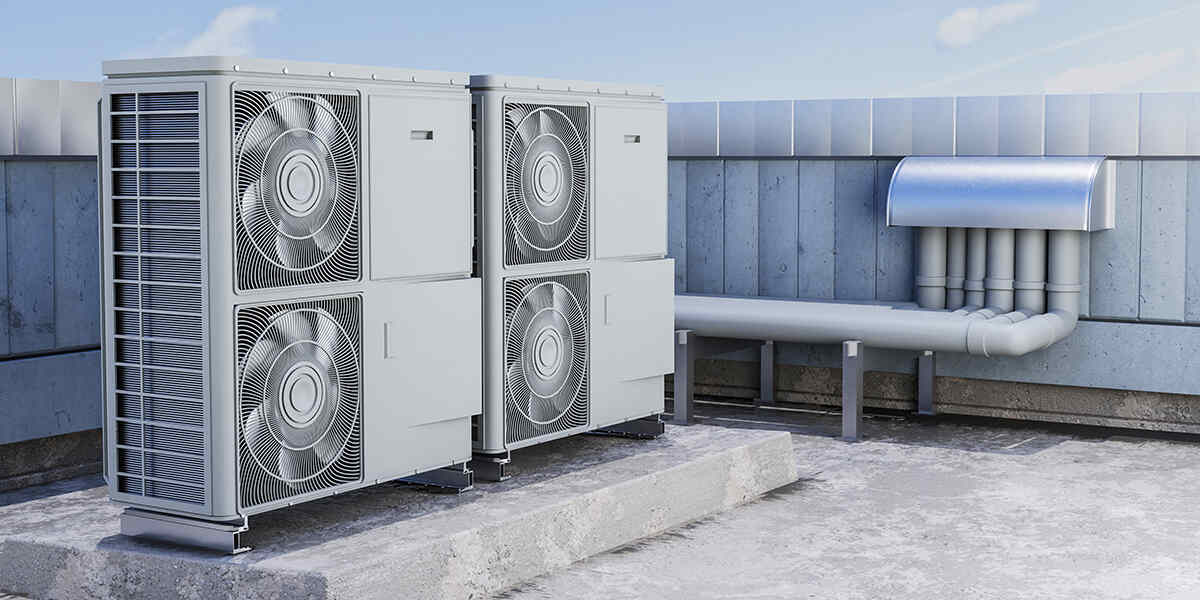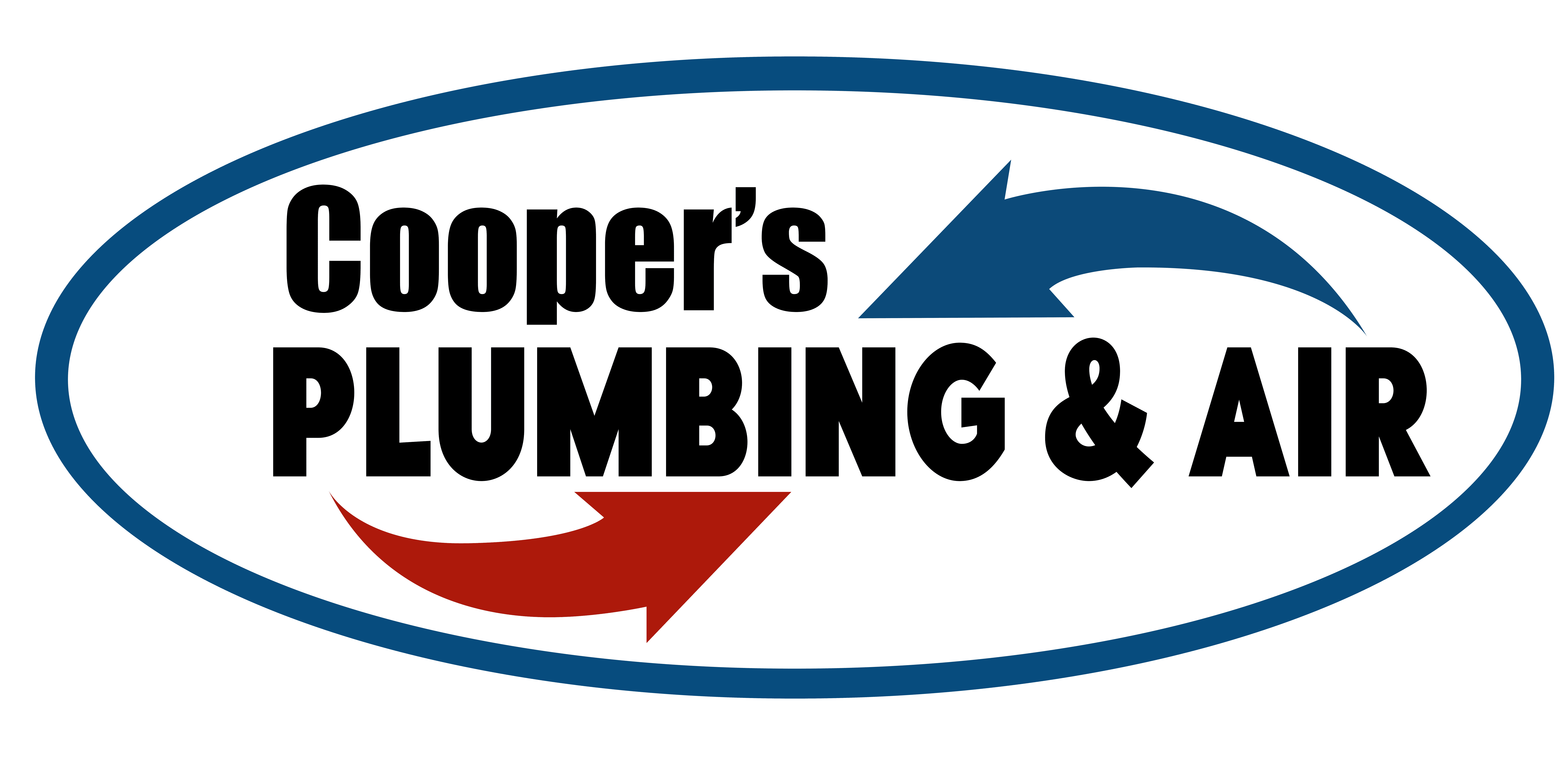
Like every mechanical system, air conditioners experience wear and tear through ordinary use. These complex systems also require regular maintenance to continue operating at peak efficiency. As a system with hundreds of interrelated parts, modern air conditioners can falter when one key component goes down.
Cooper’s Plumbing & Air, the most trusted AC repair company in Tallahassee, FL, shares some important information below about the parts of an air conditioner unit most prone to malfunctions and breakdowns in our hot and humid climate.
1. Compressor
Technicians often describe a system’s compressor as the “heart” of an air conditioner. Its primary function is to pressurize the refrigerant and circulate it through the system. Chemical refrigerants must be both pressurized and vigorously circulated to effectively absorb heat from indoor air and transfer it to outdoor air.
The compressor converts refrigerant from a gas to a liquid by applying pressure inside the closed refrigerant line system.
With extensive use, compressors can suffer electrical failures, overheating, and refrigerant leaks over time. Compressor failure typically causes a system to stop effectively cooling indoor spaces, even when it is properly circulating air.
2. Condenser Coil
The condenser coil is another of the essential parts of an air conditioner unit. Located in the outdoor unit, its primary function is to release the heat previously absorbed from inside air outdoors. The fan in the outdoor unit helps cool the refrigerant. This leads to condensation, which expels the heat and moisture removed from the inside air.
Condenser coils can become dirty or clogged over time due to outdoor debris such as dirt, dust, grass, weeds, and leaves. To operate correctly, condenser coils demand free and adequate airflow, and poor ventilation or dirt buildup acts as an insulator that keeps the heat inside the system, only to recirculate back inside.
3. Evaporator Coil
The other end of the refrigerant cycle lies with the indoor unit’s evaporator coil. This coil receives pressurized refrigerant from the compressor, which evaporates inside the coil into a gas. In the process, the refrigerant effectively absorbs heat and humidity from the air inside your home.
As the coil cools indoor air, it is immediately recycled back through your home, reducing temperature and humidity.
Because of their function, evaporator coils are prone to freezing — especially when airflow becomes restricted or refrigerant leaks from somewhere in the system. Reduced cooling efficiency and ice buildup on the coil or refrigerant lines are strong indications of evaporator coil failure.
4. Expansion Valve
One of the lesser-known parts of an air conditioner unit among homeowners is the expansion valve. This valve regulates the flow of refrigerant into the evaporator coil. It measures the flow to the coil, allowing refrigerant to rapidly expand from a high-pressure liquid into a low-pressure gas.
Clogs or mechanical failures can cause the expansion valve to malfunction, interrupting the proper flow of refrigerant. These issues can lead to problems across the cooling system, including the potential for extreme stress on the compressor.
5. Thermostat
The thermostat is the control center of your air conditioning unit, regulating the temperature in your home. It communicates with the air conditioner, telling it when to cycle on and off. Without a properly calibrated and functioning thermostat, the cooling system has no information instructing it when to turn on or off.
Thermostats can malfunction because of electrical connection issues, improper calibration, or sometimes simply because they are mechanically and technologically outdated. A faulty thermostat always leads to a system running too much or too little, wasting energy and failing to provide basic indoor comfort.
6. Fans
The fans are key parts of an air conditioner unit. Adequate and unrestricted airflow is absolutely essential for proper cooling function. There are two main fans in an AC system: the indoor blower fan, which pushes cool air into your home, and the outdoor fan, which helps cool the refrigerant by blowing air over the condenser coil.
Fans can experience mechanical issues such as motor failure, bent blades, or loose belts. These problems can reduce the efficiency of the air conditioning system and may cause unusual noises or vibrations.
FAQs
Here are some typical questions customers ask about the parts of an air conditioner unit and cooling system maintenance.
How often should I have my air conditioner serviced?
You should have your air conditioner serviced by the experts at Cooper’s Plumbing & Air at least once a year. We recommend professional maintenance before the cooling season begins in spring to ensure early detection of minor air conditioning issues for prompt repairs and expert cleaning and inspection.
Can I perform any maintenance on my air conditioner myself?
Homeowners should perform some maintenance on their air conditioners. Change the air filter no less than every 90 days, and check it every 30 days during the cooling season for dirt buildup and clogging.
Keep the outdoor air conditioner unit free of excess vegetation and debris to promote adequate airflow. Occasionally gently was the outdoor unit with your garden hose.
What are the signs you need air conditioner repair?
There are a couple of different signs that your air conditioner might need to be repaired, including strange noises and smells, insufficient cooling, and high energy bills. If you’re concerned, make sure to reach out to a contractor for assistance.
Trust Cooper’s Plumbing & Air for Professional and Courteous Service
We hope this brief discussion of some of the critical parts of an air conditioner unit most prone to failure will help you recognize early warning signs and avoid system breakdowns and costly repairs or replacements.
Read some of our other blog posts for more information about your cooling system, like the causes of an AC turning off by itself and much more.
Rely on Cooper’s Plumbing & Air and our more than 20 years of experience serving the Tallahassee and Bainbridge region with HVAC installations, regular maintenance and repairs, and 24/7 emergency service.
Contact us online or call (866) 464-7132 to schedule service for your home comfort needs.
